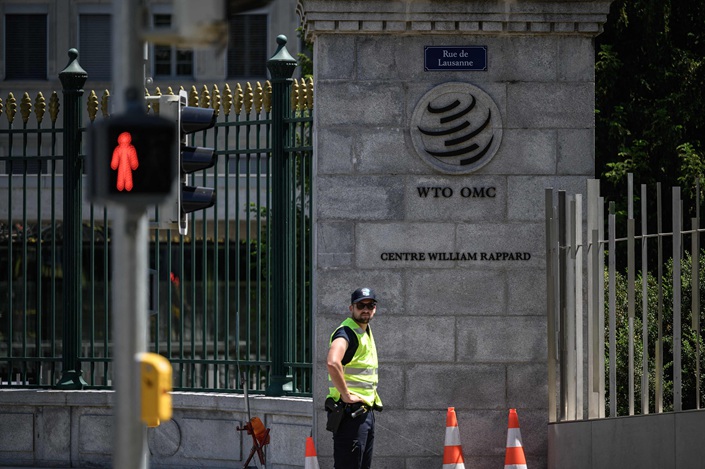
The Covid-19 pandemic derailed economies everywhere, and in most developing countries, incomes remain well below pre-pandemic levels. Inflation, made worse by the war in Ukraine, is particularly painful for low-income and vulnerable countries, where essentials like food and energy dominate household budgets. Higher interest rates are exacerbating debt distress across much of the developing world, squeezing public and private investment and paring back growth. To compound this, the climate crisis is hitting hardest the very countries that did contributed least to the problem, and which have the most limited means to cope.
Already, we are seeing the reversal of hard-won development gains. The World Bank estimates that the pandemic and the war in Ukraine have pushed 90 million more people into extreme poverty. The World Food Programme projects that almost 350 million people may be food insecure in 2023, almost double the number in 2020. In the wake of the pandemic, unemployment is higher, gender gaps are wider, and the share of young people with neither jobs nor sufficient education has risen, according to the International Labour Organization.
None of this is inevitable. If we take the global implementation of the United Nations Sustainable Development Agenda as a barometer of progress, it is true we are on the verge of failing — particularly for countries with inherent vulnerabilities. But governments, the private sector, and civil society can make the decisions today that lay a foundation for sustainable development for generations to come.
We need a global transformation strategy that works for all — one that addresses energy transition, the climate crisis and development finance, while putting people at its core. A just industrial and growth strategy must be part of this, in developed, developing, and least developed countries, small and large: a strategy that decouples economic growth from environmental degradation.
Here, international trade has a critical role to play in creating the better jobs, value addition, and greater resilience that countries are seeking.
Over the past 40 years, the global economic integration underpinned by the multilateral trading system helped lift over 1 billion people out of poverty.
But even before the pandemic, it had become clear that many people in poor countries have not received a fair share of the gains from globalization. Neither have many poor people in richer countries.
The weaknesses exposed in global supply chains by the war in Ukraine and the pandemic should be treated as an opportunity to reimagine globalization, and assist countries and communities left behind during recent decades to use trade as a means to meet their sustainable development aspirations.
At the crux of this reimagined globalization is bringing many more countries into what would become deeper de-concentrated networks for producing goods and services.
Companies have already been moving to add suppliers in places like Southeast Asia, India, and Mexico, whether to save on costs or to manage risks. Fast-growing demand for services delivered over the internet is creating opportunities around the world. Extending these re-alignments to encompass smaller and more vulnerable countries would enable them to use international markets, ideas, and capital to create better, more productive jobs.
In addition, drawing more small- and women-owned businesses into these production networks would deliver manifold socioeconomic benefits. Beyond the gains of development and inclusion, more diversified supply chains would also be more resilient to localized shocks, like extreme weather events or disease outbreaks.
Open and predictable markets are a prerequisite for this re-globalization process. But they are not sufficient. Access to finance on prolonged and low-cost terms is an indispensable part of building a more sustainable, more inclusive global economy. The Bridgetown Initiative put forward by the government of Barbados calls for a reassessment of the current global financial architecture to drive multilateral and private sector financial resources toward climate mitigation and resilience. Following through on this initiative could play an important role in addressing the climate finance needs of developing countries and indeed the financing of the Sustainable Development Goals.
A strong and effective trading system would amplify the impact of necessary action on debt reform and green investment: exports earn foreign exchange, and access to larger markets increases potential returns on investment.
Every part of this agenda is a tall order, all the more so at a time of rising geopolitical tensions. But as governments demonstrated by striking several multilateral agreements at the WTO ministerial conference last June, cooperation on trade is still possible. These efforts must continue so that the multilateral trading system helps all economies seize the opportunities available to them, and cope with the vulnerabilities and challenges. Working together, we can use trade to build a fairer, more just, and more resilient economic future.
Mia Amor Mottley is prime minister of Barbados. Ngozi Okonjo-Iwealais is director-general of the World Trade Organization.
The views and opinions expressed in this opinion section are those of the authors and do not necessarily reflect the editorial positions of Caixin Media.
If you would like to write an opinion for Caixin Global, please send your ideas or finished opinions to our email: opinionen@caixin.com
Get our weekly free Must-Read newsletter.


.jpg?w=600)




